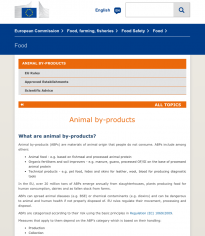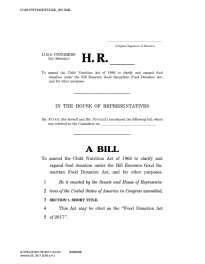Regulatory Environment for Restaurants, Catering and Food Service
Restaurants, caterers, and food service face several challenges to food recovery, including regulatory constraints, liability concerns, and infrastructure limitations for storage, transport and operational bandwidth. There is however a huge opportunity for food service establishments to capitalize on allowed tax deductions and serve as a positive contributor to their communities. One of the best ways to address liability concerns is to learn more about local and country regulations in regards to food donation.
In any food recovery program, the type of food served by the company influences the amount of donations. For example, pre-packaged food is easier to pack and transport, making it simpler to donate than fresh food, which requires controlled labelling, handling, storage, and transportation practices.
Examples of Legislation Which Influences Food Loss and Waste (FLW)
Examples of Legislation Which Influences Food Loss and Waste (FLW)
Examples of legislation which influences food loss and waste (FLW) decision making by retailers includes:
- The EU Animal By-Products Regulation (ABPR) (1774/2002) regulates the processing and disposal of products derived from animals and prevents material from animals not fit for human consumption from entering the feed chain. ABPR prohibits the disposal of uncooked or untreated fish products to landfill, and retailers have therefore have had to adopt methods which are ABPR compliant such as rendering, with material also used in production of pet food. Rendering will generate protein meal and an oil component both of which may be used in a range of applications.
- The “Bill Emerson Good Samaritan Act of 1996” in the US was brought in to encourage the donation of food and grocery products to non-profit organizations for distribution to individuals in need. The updated 2017 bill:
- Improves federal oversight of liability protections for food donation under the Emerson Act by delegating authority of the Act to the U.S. Department of Agriculture
- Expands liability protections to food donations sold at a reduced price
- Expands liability protections to include food service establishments, retailers, educational institutions, restaurants, wholesalers, and farmers that donate food directly to individuals
- Extends liability protections to explicitly cover past-date foods;
- Expands liability protections to mislabelled food as long as the mislabelling does not relate to food safety.
- Currently, protections only cover donations made to non-profits for ultimate distribution to those in need
Key Publications
Overview of animal by products and links to relevant EU legislation and information. | |
The full text of the US Food Donation Law. | |
The aftermath of the French Legislation on food waste Overview of impact and features of the French food waste legislation. |
More Resources
More Resources
31 October 2023














